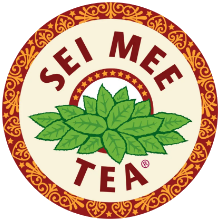Several weeks ago, a famous vegan chef, Chef AJ, interviewed me on her YouTube live show. We received many questions, and among them was a question about the organic status of the decaf Sencha powder. “Is your decaf Sencha powder organic?” “If it’s organic, why is there no organic seal on the product?” During the show, I was going too quickly as the time was running out, so my explanation was incomplete–and it created some confusion. So, I appreciate the opportunity to explain here why the product doesn’t have an organic seal, and what is required to put a USDA organic seal on a product.
From this article, you will learn
2. What is required to put an organic seal on a product legally?
3. Why does our product package not have an organic seal?
1. Is our Decaf Sencha Powder organic?
The answer to your question, “Is our decaf Sencha powder organic” is YES, we use certified organic Japanese Sencha to make our water process decaf Sencha powder. You can find that fact in the ingredient list of the product, as permitted by US law.
2. What is required to put an organic seal on a product legally?
Then, why does the product not have an organic seal on it? To answer this question, you need to understand how organic certification works. Certification requires all parties involved in the production of a specific product to be certified organic.
For example, SEI MEE TEA, as a company, is organic, certified by Oregon Tilth, one of the leading organic certifiers. However, we cannot just start to slap a USDA organic seal on any products we offer or produce. In other words, certified organic products need to be able to prove everyone who is involved to make this particular product is certified organic.
As you can imagine, there is more than one party involved to make one product. Here’s how our decaf tea is made:
- In the tea field, our tea farmer uses only organic matter to grow and take care of tea plants. The fertilizer suppliers and other organic ‘plant food’ manufacturers must also be certified organic.
2. The certified organic tea farmer harvests tea leaves and takes them to a processing facility, where the majority of caffeine is removed from the tea leaves. This step needs to happen while the leaves are still fresh, within 30 minutes of the harvest. The decaffeination treatment uses only water–no toxic substances or chemicals–and the whole process is patented. (And the decaf processor holds the patent.) The process itself is an ‘organic method,’ but the processor has, unfortunately, chose not to spend the time and money to become certified.
3. The decaffeinated tea leaves are then transferred to another tea processor, where the tea leaves are finished up as ‘Sencha’ leaf tea with drying and kneading steps, and then ground into a fine powder.
4. The powder is then transported in bulk to a product packer and packaged as a product—this is us.
As you can see, only one facility, the decaffeination processor, doesn’t carry the organic certification.
The main reason they decided not to get organic certification is the cost and trouble for them to get the certification. Only 6% of green tea production in Japan is organic. On top of that, decaffeinated tea is not as popular in Japan compared to the demand in the U.S. The cost and trouble to go through the process each year is not justified for them—that’s their argument. Since they hold the patent, they are the only water process decaffeination facility that we can use.
However, please be reassured—as the equipment is thoroughly washed before the decaffeination process, and since only water and organic tea leaves are used in the decaffeination process, contamination risk is close to zero.
3. Why does our product package not show an organic seal?
As I shared in my story about how we started the tea business, purity is important to us. Green tea is more than “tea” for us—it was and is hope for healing and part of our personal wellness regimen. It is our mission to deliver pure and quality tea to our precious customers.
We follow the U.S. labeling law. Thus, we do not put the USDA organic seal on the decaf product despite two important facts:
1. The tea leaf itself is grown organically by a certified organic tea farmer.
2. The one party, who has chosen not to become certified, does not use any chemicals to conduct the entire process.
The law does allow us to list organic ingredients if in fact using the organic ingredients. When you look at the ingredient list of our decaf Sencha powder, it says organic Sencha green tea.
I hope this fact tells you how we take organic certification seriously. We put the organic seal on the Edible Green Regular tea products and other tea products only when they are qualified.
Thank you so much again for your great question and attention to this important matter!
Related Topics


